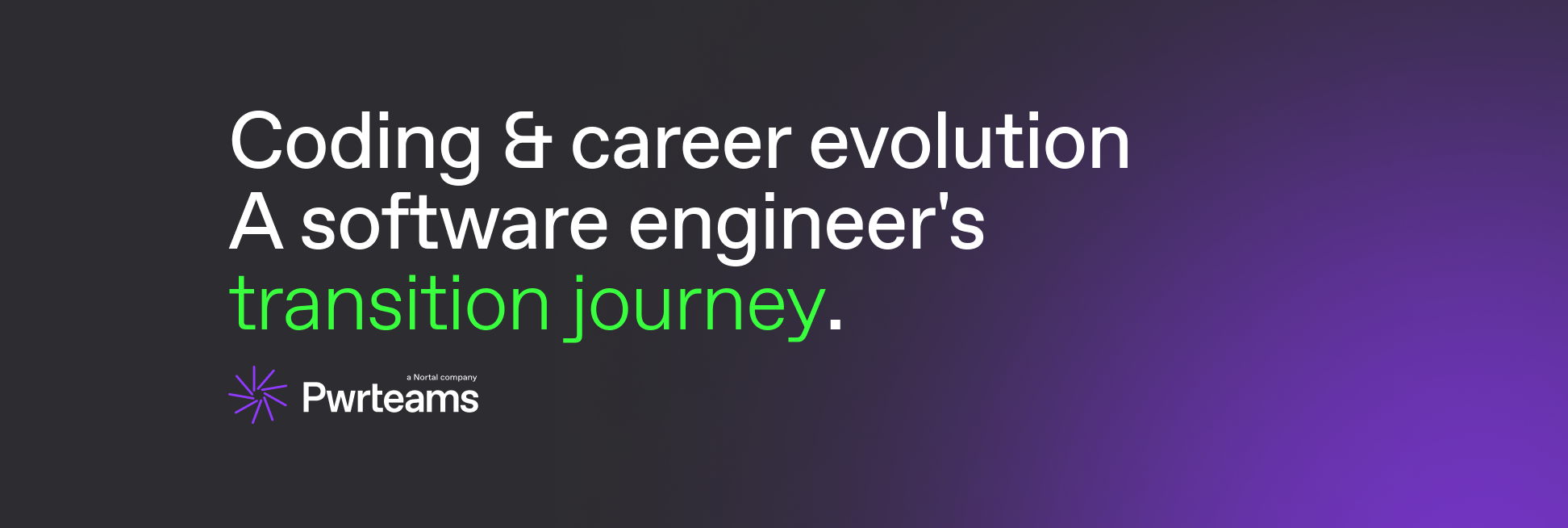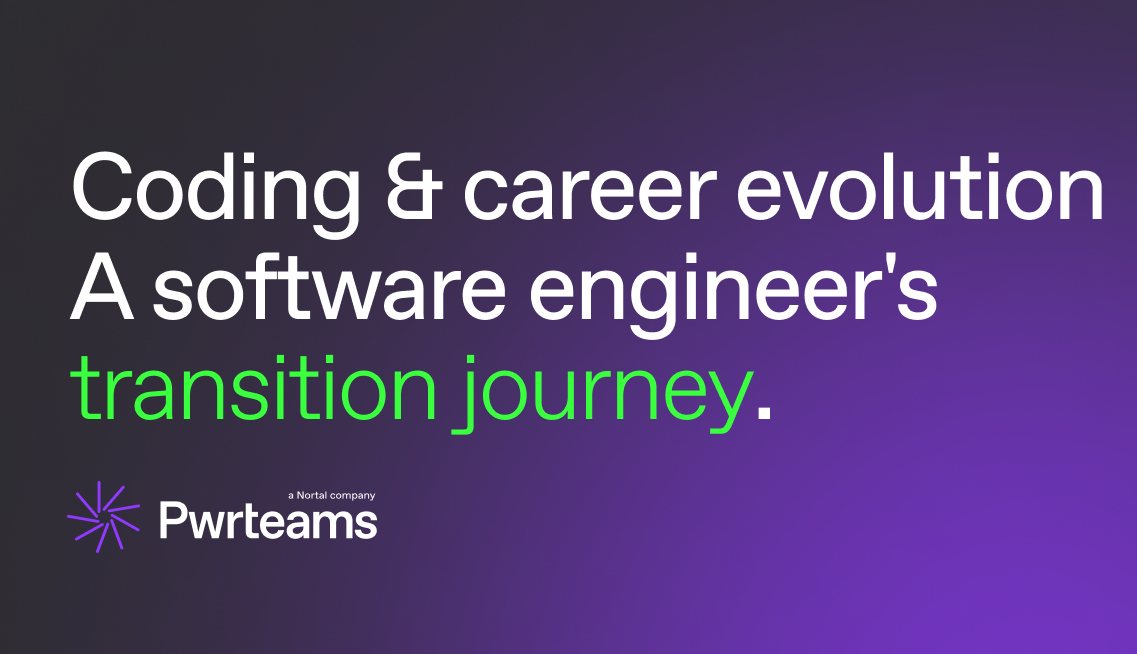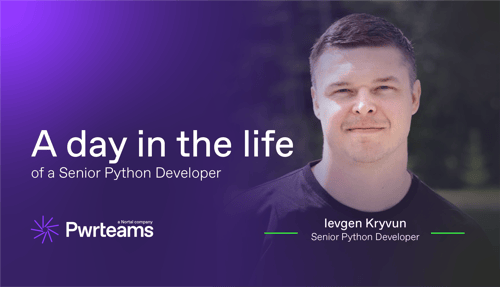From Ruby to Python: journey in software development at Funding Circle


As we mark the 28th anniversary of Ruby on Rails, we invited our colleague Akseniya Penkova, a Software Developer in the Funding Circle team at Pwrteams, to share her thoughts on how she got started with this high-level and general-purpose programming language and what has it given her in terms of knowledge and experience.
1. Hi, Akseniya! Can you share a little bit about your journey into the field of technology?
Hello everyone! I am Akseniya Penkova, a Software Developer. My first coding experience was fairly late. It all started with small projects at school, but my bigger brother was the one who truly ignited my passion for programming. He was fascinated by technology, knew that this was his future and I wanted to be just like him. That is why I chose to study computer science and during my last year at the university, I found an opportunity to start as an intern with the exotic (at the time) Ruby on Rails technology. I started learning the new language and framework from scratch and this helped me start my professional path as a developer. Currently, I am working as a back-end developer with Python.
2. As a graduate with a degree in computer science, what aspects of your academic experience do you feel prepared you the most for your career in technology?
My computer science degree gave me fundamental skills in algorithmic and outside-of-the-box thinking. These skills are invaluable in my area of work as they let me solve problems efficiently and anticipate critical situations, while striving for excellence in software development.
3. Tell us about your role as a Software Engineer in the Funding Circle team at Pwrteams. What are your main job responsibilities?
For the first time in my career, I have the privilege to be part of a team building something from scratch! That frees me from having to maintain legacy code, but it also means I need to participate in every stage of the project. From setting up infrastructure to creating processes - how we work, how we deploy and how we test. It is an exciting challenge that I am really enjoying!
One of the best things about this job is that coding is the most important part. I love working with code and seeing how it can be used to create something new and different. I'm also learning a lot about how to work effectively as part of a team, which is a skill that will be valuable no matter where my career takes me.
4. And what is your favorite thing about working at Funding Circle?
One of the things that I value most in a job is a good work-life balance. I have heard many companies say that they prioritise a healthy balance between work and personal life, but it is not always true.
However, at Funding Circle, this is not just a catchy phrase. The company truly values the overall mental, physical, emotional and economic well-being of its employees. I'm grateful to be part of a company that understands the importance of making time for the things that matter most to me.
5. You mentioned that you started your career as a Ruby Developer. Can you share more about how you chose Ruby on Rails and how this experience shaped your early career path?
It was pure luck. I was standing in the university hallway and waiting for my next class, when I saw a small flyer saying something like “If you do not have any experience, but you are eager to learn and you are excited to make things work with modern technology like Ruby on Rails - apply here!”. I was so excited that I did not wait a minute and went to the internet club to create a resume and apply for the job. I did not have high expectations, but it was just a day or so before I was invited to an interview and another few days before I was approved for the position.
6. Could you highlight some aspects of Ruby on Rails that you find particularly interesting or powerful for software development?
At the time I had a little experience with full-stack platforms and did not enjoy working with them. Everything was difficult to set up, to run or to build. And then I was introduced to Rails, where the most famous tutorial was a 20-minute video building a small blog project - not very impressive in terms of design, but fully functional from a back-end perspective. There are a lot of conversions that make decisions easier and more consistent (and my perfectionist self loves them).
7. In your experience with Ruby, are there specific projects or challenges that stand out as particularly memorable or rewarding?
The first project that stands out in my mind is my first Ruby application "Hello World!", of course.
I remember it was late in the day. I was left with a few things to read and the last task for the day was to build my first application. I was tired, but I was determined to get it done before I got home. I had all the internet could give me (which at the time was not that much) to build that very “difficult” and “challenging” project. And it did not work and did not render these 2 words. I vividly remember that it was passing working hours, but I really wanted to make it. I was frustrated but decided to try one more thing. And... it worked! I could not believe that it was working, so I tested it a few more times and happily closed my computer feeling satisfied that I made it.
8. How has your proficiency in Ruby influenced your approach to problem-solving and software design compared to your work with other languages like Python?
Most of the time it makes me think for the most compact, yet readable piece of code needed to solve anything. Which is sometimes a challenge when you are doing five operations on a single line.
9. Transitioning from Ruby to Python is quite interesting. What motivated you to diversify your skill set, and how has your experience been as a Back-End Developer working with Python?
I was at a point in my career when the only thing I knew was Ruby on Rails. And I asked myself “Do I want to stay at the same ‘safe place’ and invest all my time in that one platform?”. So, I decided that it is the time to make a change and learn something new.
Being entirely focused on the back-end faced me with completely new problems, which excited me much more. Designing algorithms for back-end is way more challenging and satisfying to me than wondering why the front-end is broken.
10. In your experience, how has the landscape of diversity and inclusion in the tech industry evolved, and what positive changes have you observed?
Fortunately, I have never been in a position to be discriminated, but I’ve heard stories from others, especially women, that they were treated differently for being girls in the tech world (in the sense that they can’t reach leading positions). Happily, these issues are now receiving more attention and being discussed. In my opinion, a person's ability to do their job should be the main factor, regardless of gender, ethnicity or religious beliefs.
11. Finally, could you share a personal or professional achievement that you are particularly proud of in your career so far?
Hmmm, I do remember one situation at my previous workplace. One of my greatest professional achievements was the successful turnaround of a project seemingly doomed to fail. It was in a critical state - no documentation, no knowledge transfer from the previous team that developed it, just a pile of code with no trace of why it was built the way it was. But after endless debugging hours and with the joint efforts of my team, it was successfully delivered. This experience reinforced my belief in the power of technology and the importance of resilience, adaptability and strong leadership.
Write your own
success story
with Pwrteams!
Share your details in the form, tell us about your needs, and we'll get back with the next steps.
- Build a stable team with a 95.7% retention rate.
- Boost project agility and scalability with quality intact.
- Forget lock-ins, exit fees, or volume commitments.


